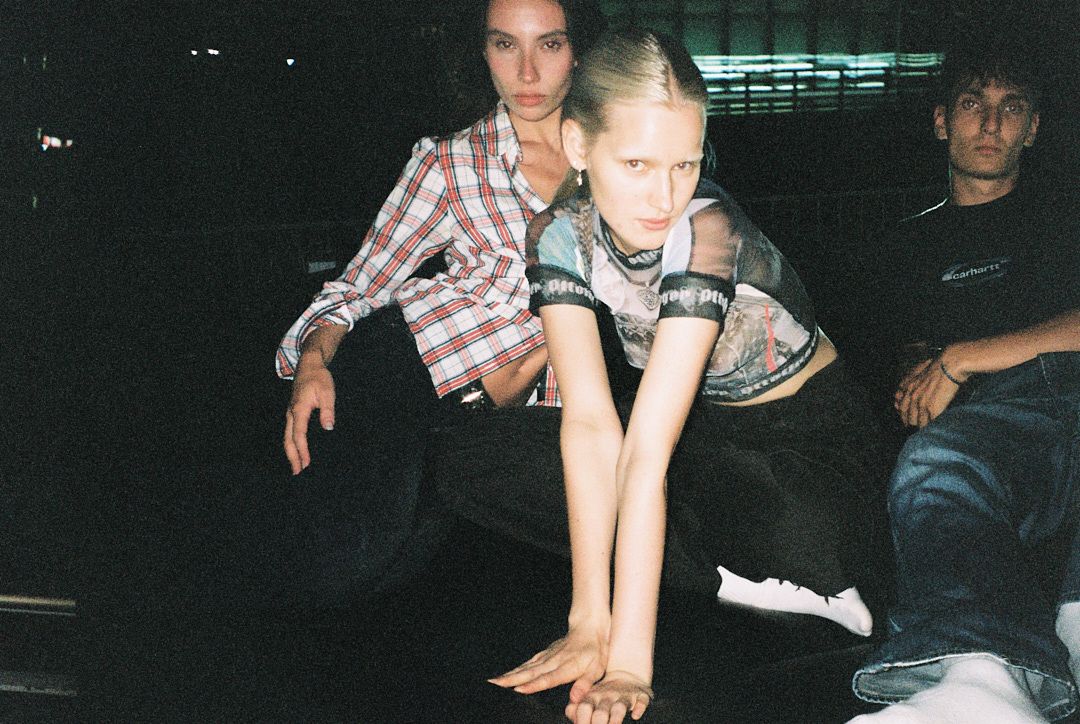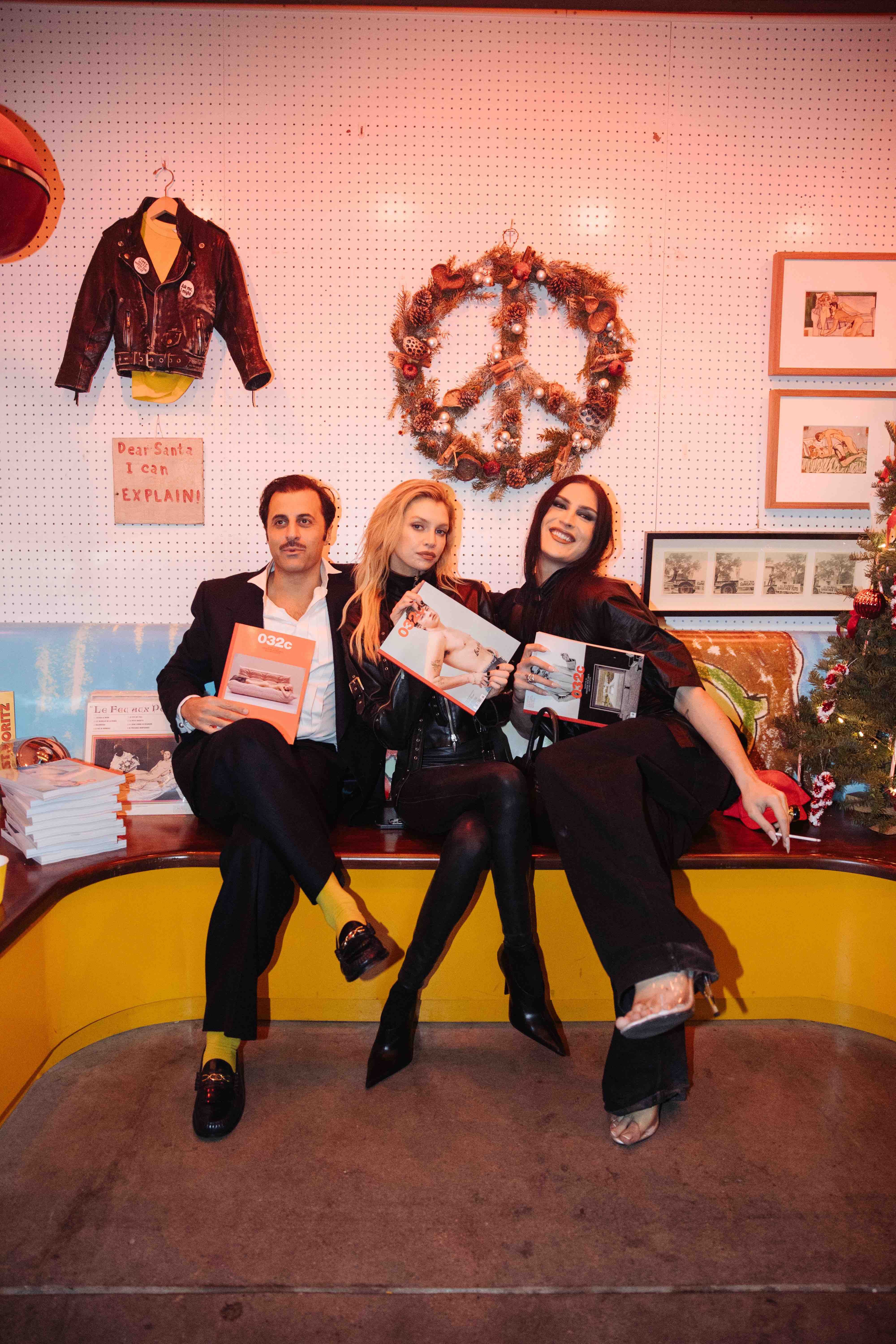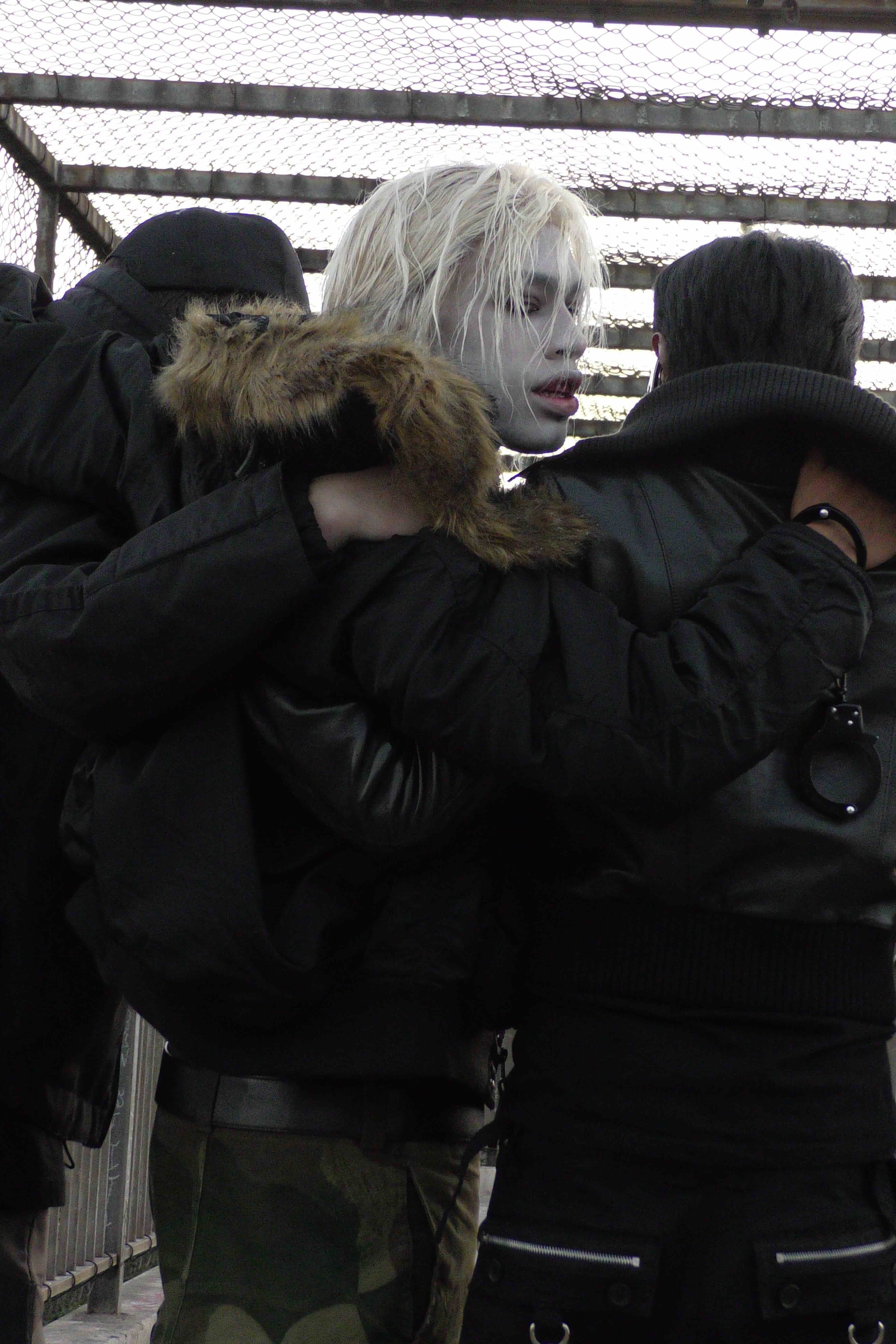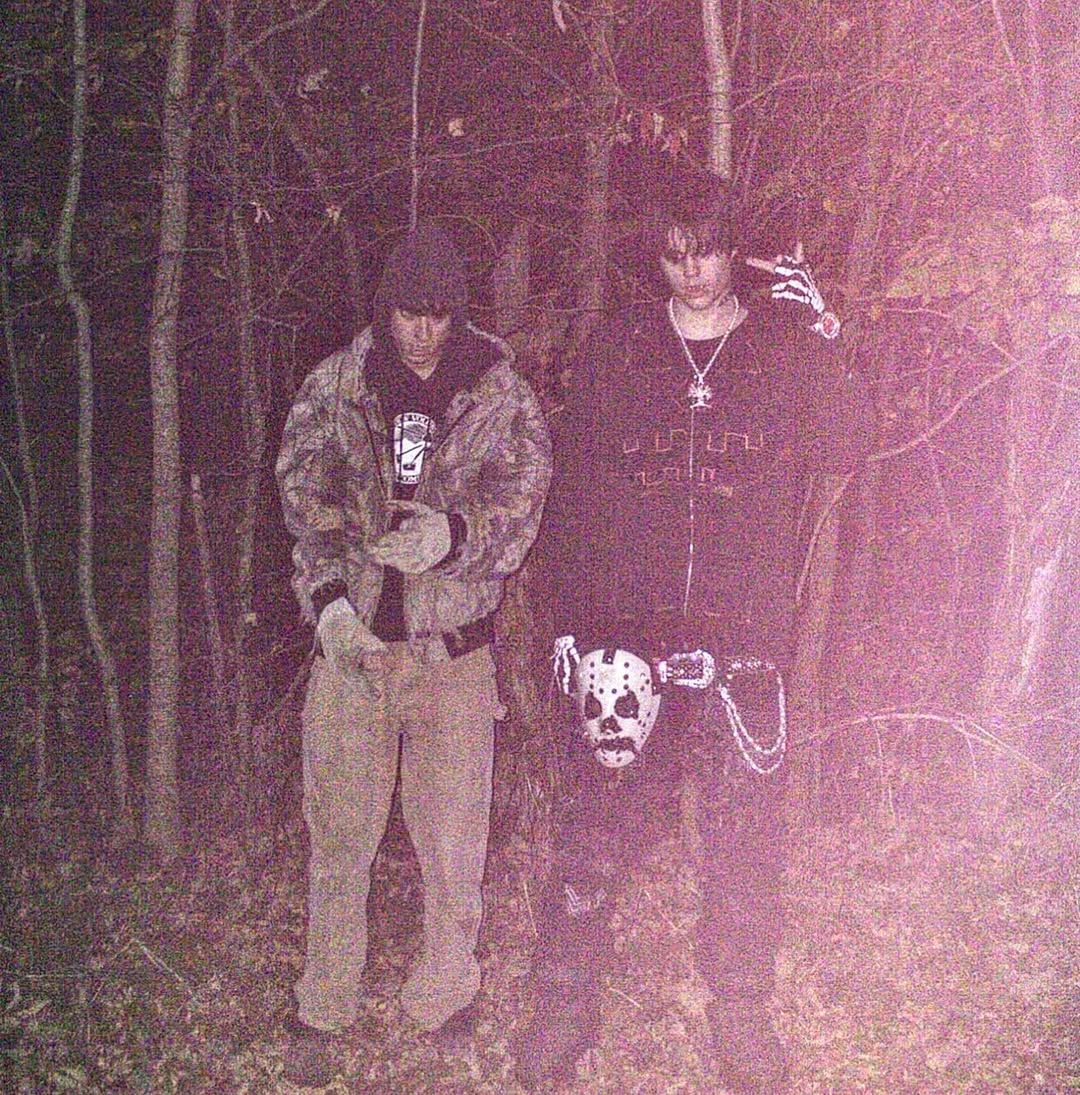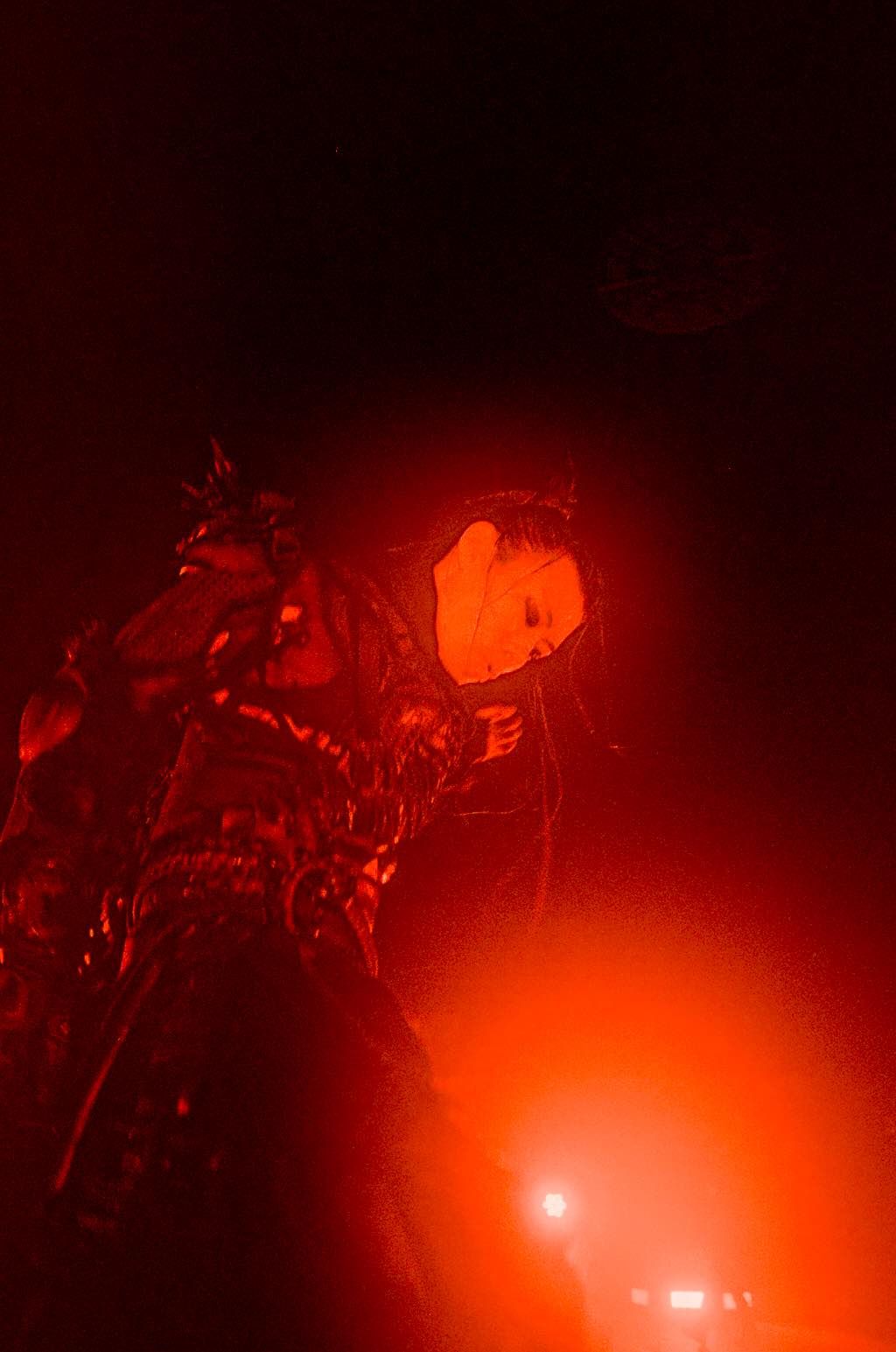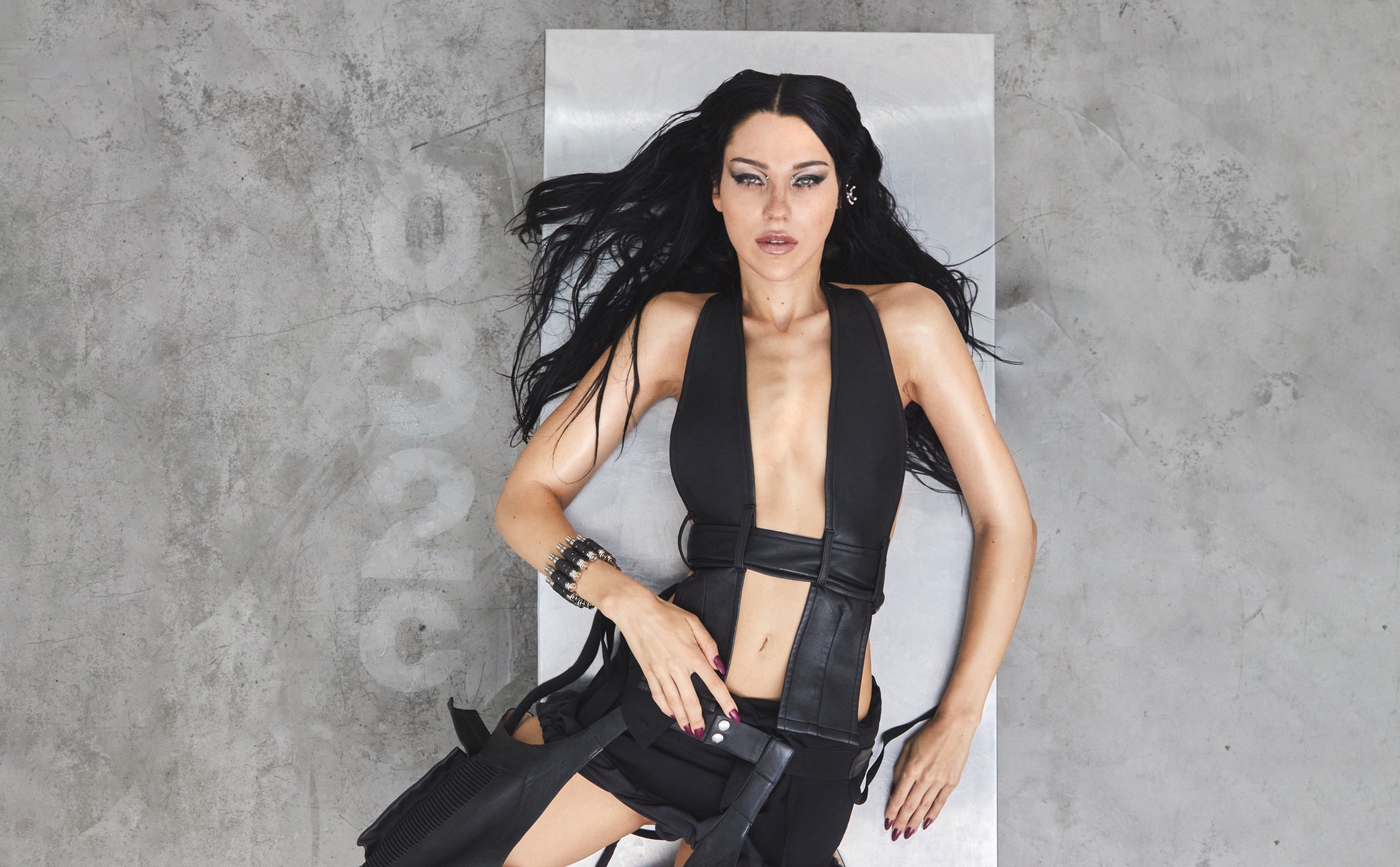Joanna Kuchta: Disappearing Acts and Digital Divinities
|CASSIDY GEORGE
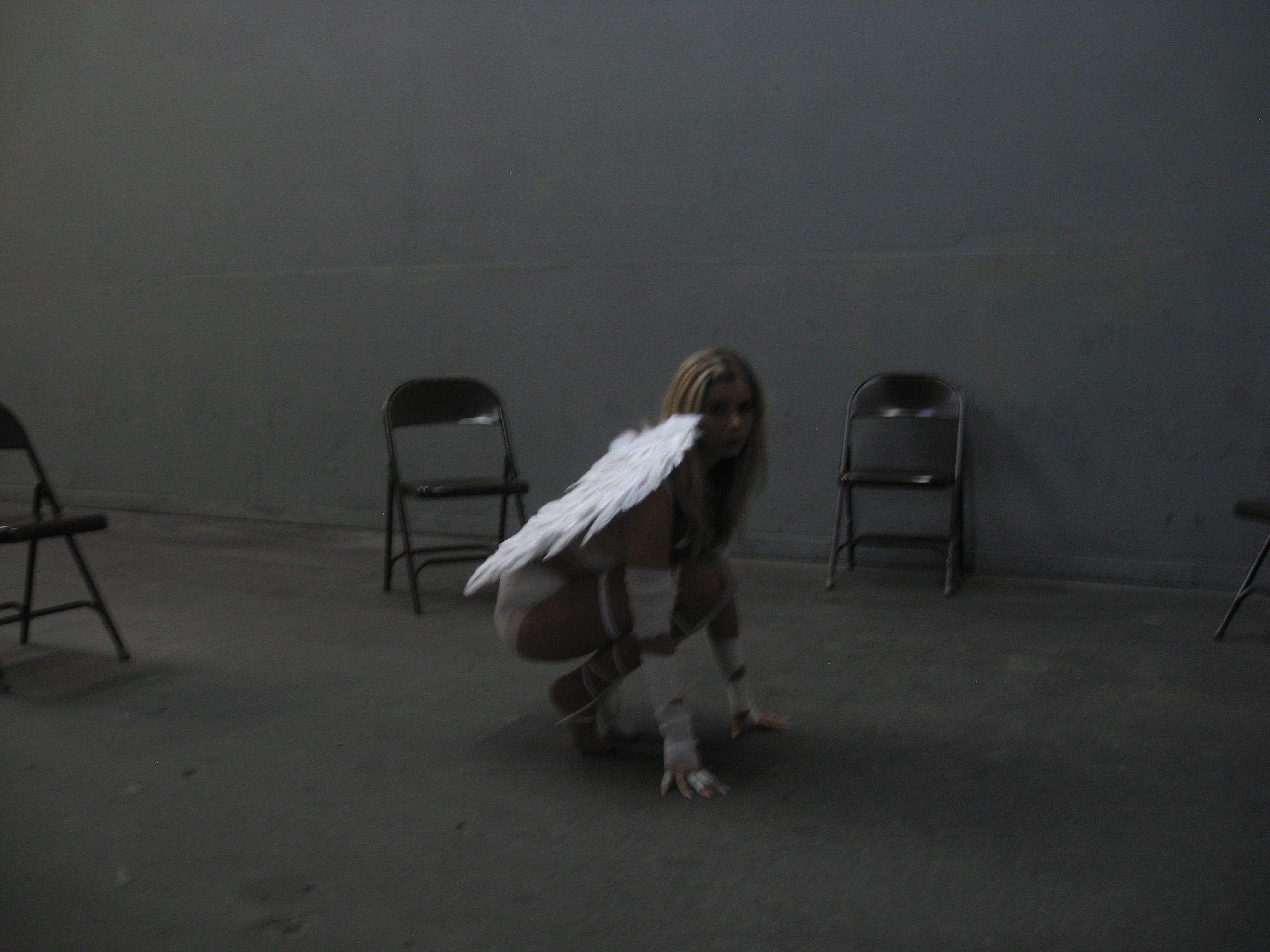
Known as one of the defining visual forces on Tumblr in the mid-2010s, Joanna Kuchta has also forged a path as a successful DJ. The Polish-born artist and creator has recently bewitched electronic music fans with videos of techno sets recorded in “liminal spaces” that include a subway station, video store, and office building. Often playing in a white button up, black tie, and plaid skirt, the platnium-blonde artist––especially when placed in these uncanny environments––looks like a Japanese video game character, hovering in one of the forgotten rooms of a Y2K RPG. The ex-Berlin resident has also soundtracked numerous 032c events, appearing behind the decks at 032c Bar Night and the 032c Issue #46 launch in Los Angeles—which she now calls home.
This week, Kuchta released the melancholic drum and bass single “Disappear” alongside a music video directed by her longtime collaborator and partner, Rudy Grazziani. On the occasion of the release, we spoke about her Catholic upbringing, Silent Hill (2006), and drunken bus rides home.
Cassidy George: You wrote “Disappear” while sitting on the top deck of an N55 night bus in London. Where were you going, and what was happening in your life at the time?
Joanna Kuchta: I was heading back to Hackney after a night out. I was by the window, watching the city blur past, and it took everything in me not to text someone who had always been my comfort. I knew I couldn’t anymore, so I opened the Notes app and started typing.
I’d just turned 25. Everything felt like it was shifting under me. It was one of those coming-into-adulthood moments where nothing feels safe. I was going out too much, drinking too much, definitely trying to blur things. It’s about wanting to disappear—but also about wanting to be held. Convincing yourself you’re over it, even though you know you’re not.
CG: The track is an ethereal take on drum and bass. What’s your relationship to the genre, and why did it feel right for this song?
JK: I got into drum and bass when I moved to London—this was about ten years ago. Drum and bass, garage, jungle... that is London to me. It’s the sound of the city. When you’re walking home late or sitting on a bus at 3am, it just clicks.
London can be a lonely city. Grey skies, packed trains, and yet you feel completely alone. I was going through a rough time emotionally, and that contrast—something hard and fast, but also soft and ethereal—just felt right.
CG: Had you been writing lyrics for a while?
JK: I’ve always loved writing—books, lyrics, poetry. I think I fell in love with words before anything else. That feeling when something is written so well it reshapes your brain for a second—I’ve always chased that.
I used to write on guitar, and for a while I thought I’d make shoegaze. But I grew up on electronic music, and once I started producing, it felt like the most honest way to express what was in my head. Music, for me, is like building a world outside myself. It’s everything that’s swirling inside me made real.
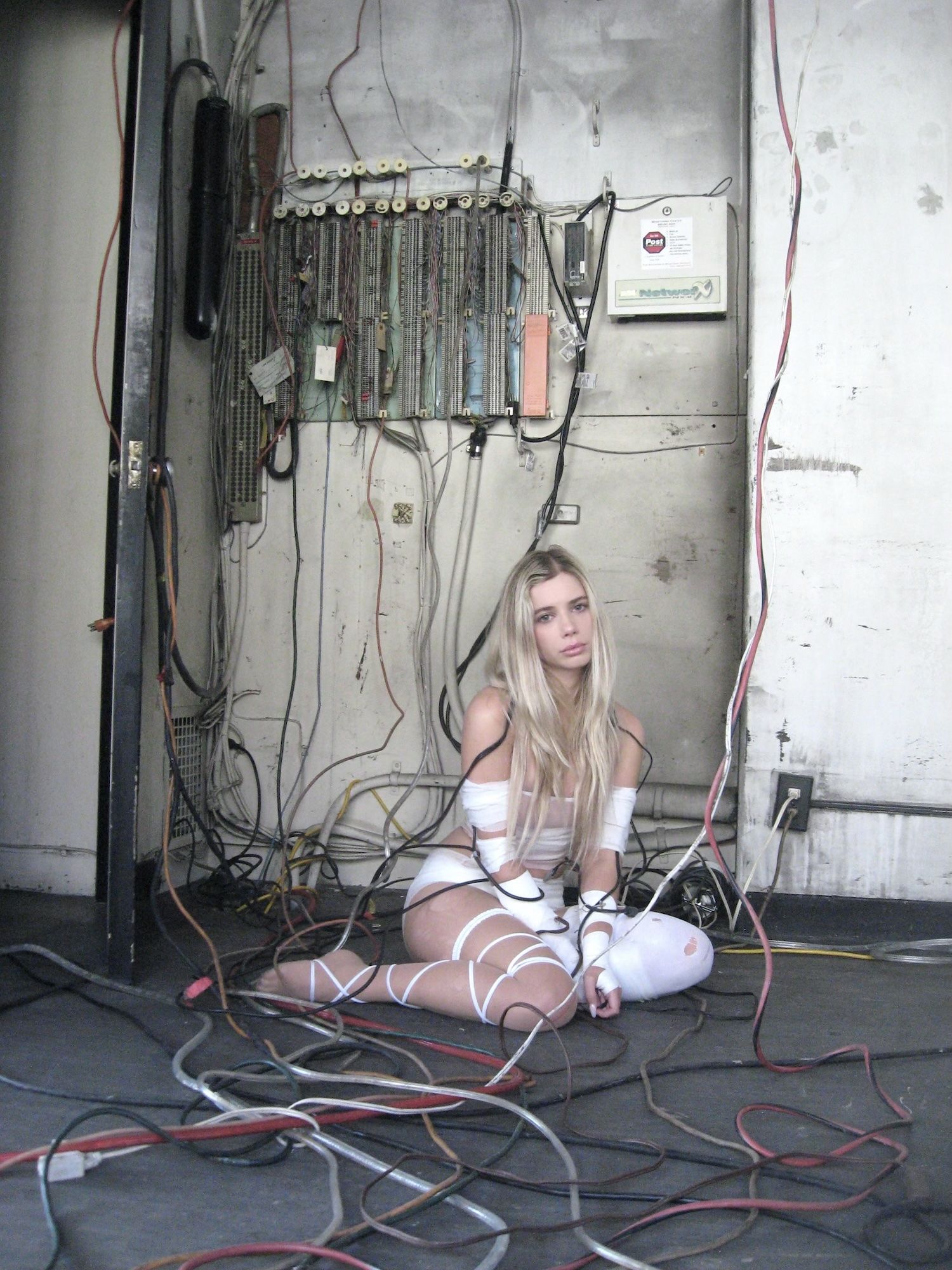
CG: You’re known for recording DJ sets in “liminal spaces.” How do you define that term? And what draws you to those kinds of environments?
JK: Liminal spaces have always fascinated me. There’s something weirdly familiar about them—like you’ve been there before, even if you haven’t. They feel empty, but not in a cold way. There’s a strange nostalgia to them. Maybe it’s because I grew up gaming—early 2000s story-driven games were full of these strange in-between places: abandoned schools, flickering corridors, silent zones where nothing happened, but everything felt charged. Silent Hill especially stayed with me.
That idea—of emptiness carrying meaning—is where the whole concept for this EP began. I started thinking about something I call the “digital divine.” Like: what is sacred now, in the age of the internet? We’re not in fields staring at the sky anymore. We’re in the feed. Our reality is filtered through screens. So, maybe the divine isn’t in the clouds. Maybe it’s in the network or in the code, watching us from inside the machine.
Visually and thematically, that intersection between religion and the digital world is where this project lives. I grew up Catholic—still am—and I’ve always found Catholic imagery really beautiful. I also grew up online. I moved from Eastern Europe to a small town in Ireland where I didn’t fit in, so a lot of my identity was formed between rosaries and message boards, incense and dial-up tones. That fusion—of the sacred and the synthetic—feels like home.
CG: How do you think spirituality is shifting as we spend more of our lives online?
JK: I think spirituality is confused right now. People worship anything—angel numbers, astrology, celebrity, money. And I don’t think that’s always a bad thing. If something gives you grounding in this overstimulating world and you’re not hurting anyone, then believe in it.
People are just trying to make sense of being alive. That’s what I’m doing, too—through sound, visuals, lyrics. I’m trying to find meaning in the static.
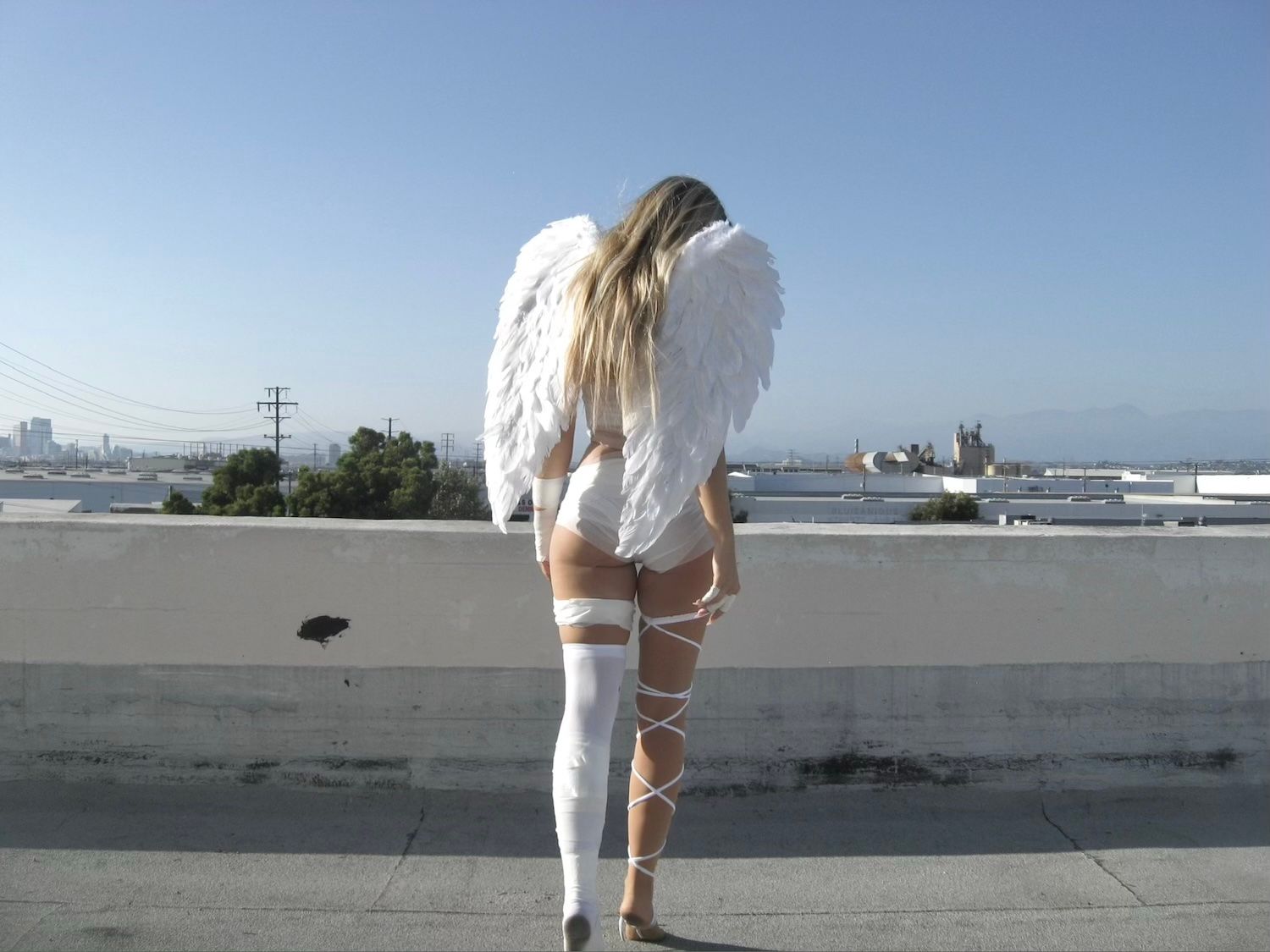
CG: Your track is called “Disappear,” but you’ve been very visible online for a long time. Do you ever feel the urge to disappear in a broader sense? Where do you go when you want to vanish?
JK:It’s funny because even though the lyrics talk about disappearing, I don’t actually want to erase myself. Especially not from the internet. I’ve been visible online since I was a teenager. I posted pictures of myself because I had something to say. Making music is a continuation of that instinct.
I don’t think I’d be in Los Angeles making music if I hadn’t put myself out there so early. People still remember the aesthetic I had. Something about it stuck. And I’m proud of that version of me—she believed in herself enough to share it.
So no, I don’t want to disappear from the internet. Not yet. I have more to say and more of my mind to show.
When I talk about disappearing in the lyrics, it’s more emotional. It’s about shutting everything out when life gets too heavy. I think everyone feels that sometimes. I definitely do. But when it happens, I don’t vanish—I just go quiet. I turn off my phone. I do something normal. Or I go to the studio and write. That’s how I breathe again.
Even though the song is sad, I think I’m quite grounded. I’m a realist with a soft spot for hope. I’ve always believed that even when things feel unbearable, there’s probably a way through. You just have to let yourself really feel––and trust that something is waiting on the other side.
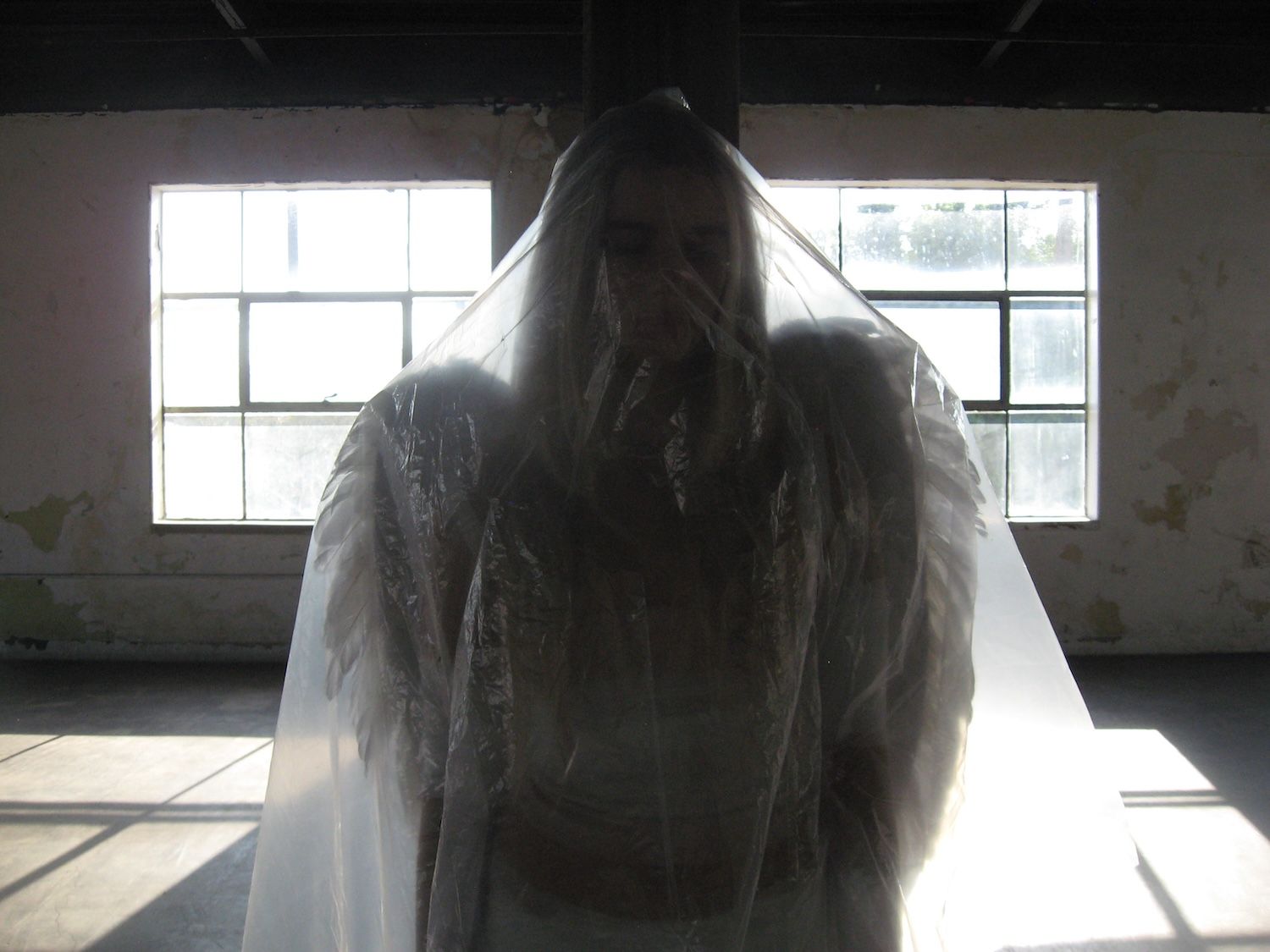
Credits
- Photography: Rudy Grazziani
- Text: CASSIDY GEORGE
